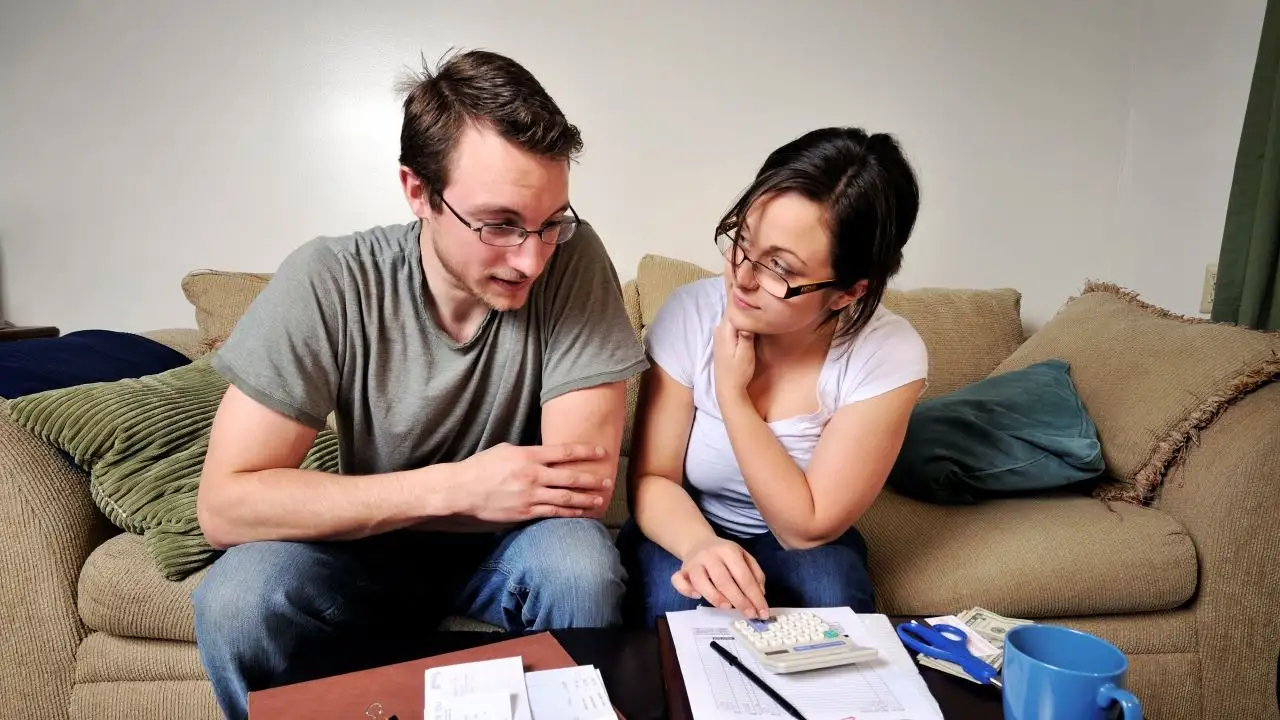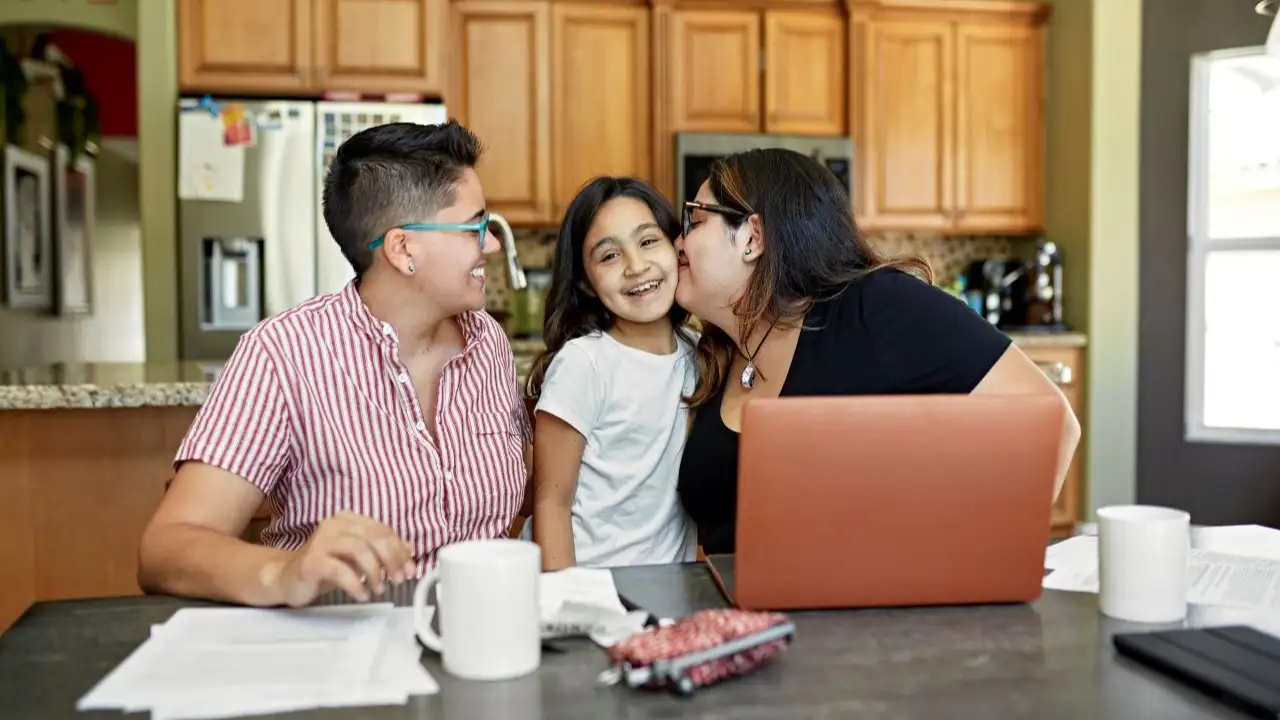
Money Tips & Education
How to fix your credit
Jan 22, 2024
Written by
Reviewed by
Key takeaways:
Improving your credit profile is possible once you understand the factors affecting it.
Some factors impact your credit score more than others.
You can take steps to fix your credit for free if yours isn’t where you want it to be yet.
Here's one for your vision board. An expense comes up in your life, and you need a loan (or a car, or a credit card—whatever the situation calls for). You apply. Not only are you approved, your credit qualifies you for the lender's best deal.
If this isn't your reality right now, it could be. The factors that affect your credit profile are within your control, and getting your credit where you want it isn't as complicated as you might have thought.
Achieve is not a Credit Repair Organization and does not provide, or offer, services or advice to repair, modify, or improve your credit.
Step 1: Learn what credit scores are made of
Before you can fix your credit, you need to know what's keeping your score from being as high as it could be. That means understanding how your scores are calculated.
FICO® scores are what most people mean when they talk about credit scores. These scores are based on five things:
Payment history: 35% of your credit score. Whether you make your payments on time. On-time payments help your score, and late or missed payments hurt.
Credit utilization: 30%. Credit utilization is a fancy way to say how much of your credit limits you're using on your credit cards. Using less is best. Maxing out credit cards can hurt your credit.
Credit age: 15%. How many years your accounts have been on your credit reports. Longer is better.
Credit mix: 10%. The kinds of debts you have experience with. For instance, a personal loan is an installment loan, and a credit card is a revolving (open-ended) debt.
Credit inquiries: 10%. Hard credit checks show up when you apply for credit. This typically causes a small, temporary dip in your score.
Pro tip: Payment history and credit utilization are the factors that can help or hurt your score the most. If your credit score is lower than you'd like, focus on improving these two factors first.
Step 2: Get your credit reports
Credit scores are based on the information about your accounts that's found in your credit reports.
Experian, Equifax, and TransUnion are the three major credit bureaus that compile credit reports. You can get a copy of your credit report from each credit bureau for free every week through AnnualCreditReport.com.
If you haven't checked your credit reports lately, now is a good time to get your hands on them.
Look over your credit reports. Then move on to step 3.
Step 3: Get errors corrected
Millions of people have errors on their credit reports. Some errors are harmless, but others can affect your score. It's a good idea to correct all errors since your credit report could make or break your ability to get the financing you need in the future, at a price that's right for you.
Common credit reporting errors include:
Incorrectly reported payment history
Incorrectly reported credit limits
Closed accounts still reported as open, or open accounts reported as closed
Accounts listed that don't belong to you
Charge-offs or delinquencies reported in error
Incorrect name variations or spellings
Incorrect current address or past addresses
If any information on your credit reports looks wrong, you have the right to dispute errors with the credit bureau reporting them. Each credit bureau has its own policies for disputing credit report errors, and the process usually starts by clicking a button while viewing your report online. You can also file a dispute by mail or over the phone.
If the credit bureau investigates and finds that an error exists, they're required to remove it or correct it.
Step 4: Learn what factors are most influencing your score
Knowing what affects credit scores in general is a good thing—the more you know about credit, the smarter you can be about using it. But it's also important to know what's specifically affecting you.
This is where it might help to sign up for a free credit monitoring service. Credit monitoring services scan credit reports and alert you to changes that might change your scores. These services usually offer tools and insight into what factors affect your scores. That can give you a starting point for knowing what to work on first.
Step 5: Set up automatic payments or reminders
Payment history is the most important factor in FICO credit scoring. If you don't want to get dinged for a late or missed payment, scheduling automatic payments is a safety net you can put in place.
You can set up automatic payments through the companies you pay or through your online banking or mobile banking app. If you can't do automatic payments because your paychecks are irregular, or you'd rather schedule them yourself, set up reminders or alerts instead.
Step 6: Prioritize your debts
After payment history, the balances you carry on your credit cards have the biggest impact on your score. Bringing those balances down is part of building a healthy credit profile. Easier said than done, we know.
Paying off debt works best when you have a realistic plan and a budget you're committed to.
There are different ways to approach paying off debt, including the debt snowball method and the debt avalanche. Choose a debt repayment plan, look at your budget, and maximize the amount you pay your creditors every month. You'll probably have to make some sacrifices. It helps to visualize how great you'll feel when you reach debt milestones. The immense satisfaction is in addition to any improvement that happens in your credit score.
If you are overwhelmed by debt, dealing with it takes priority over working on your credit score. Primarily because healthier credit is a natural consequence of improving your debt situation. By focusing on your debt, you're taking the first step to better credit. Budgeting might be only one part of your solution.
Step 7: Be proactive
Don't ignore your credit score or hope it'll get better on its own. A proactive approach can help you feel in control of your situation and produce positive results.
Here are a few simple hacks for tackling credit challenges head-on.
If you pay late, call the creditor right away. They might cut you a break and report the payment to the credit bureaus as on-time, or remove a late payment that's already on your credit reports.
If you can't pay this month, ask for help. If you have a temporary hardship, your creditor might agree to let you skip a payment.
Build your own guardrails. If your M.O. is to go in and out of credit card debt, it might be a good idea to close some accounts. Think about ways to create accountability.
Be willing to work to repair the damage. Credit repair companies often promise a quick fix for improving bad credit, but they can't do anything you can't do if you're willing to learn how (and it's not hard).
Step 8: Protect yourself from identity theft
Freeze your credit reports to reduce the chance of someone opening an account and running up debt in your name. When you freeze your credit, it blocks creditors from checking your credit. That makes it difficult or impossible for someone to open a new credit account in your name without your permission.
Freeze your credit reports online or over the phone through all three major credit bureaus. There's no fee. You can log in and unfreeze your file if you want to apply for credit. It only takes a moment.
Step 9: Get back on the horse if you fall off
No one's perfect, and your journey to improve your credit might hit the occasional bump. When that happens, forgive yourself—and don't give up. Figure out what you can do differently, and keep going.
Credit fixes can take time, depending on what you're working with. The payoff can be enormous if you stick with it. Good credit lowers the cost of financial products, and ultimately, means more money in your pocket.
What's next
Get copies of your credit reports and review them for errors. If you notice any, dispute them.
Sign up for a free credit monitoring service and enroll in alerts so you know when your credit score changes.
Talk to a debt expert if you're struggling to keep up with debt payments, or if some of your accounts have gone to collections.
Author Information
Written by
Rebecca is a senior contributing writer and debt expert. She's a Certified Educator in Personal Finance and a banking expert for Forbes Advisor. In addition to writing for online publications, Rebecca owns a personal finance website dedicated to teaching women how to take control of their money.
Reviewed by
James is a financial editor for Achieve. He has been an editor for The Ascent (The Motley Fool) and was the arts editor at The Valley Advocate newspaper in Western Massachusetts for many years. He holds an MFA from the University of Massachusetts Amherst and an MA from Hollins University. His book Krakatoa Picnic came out in 2017.
Frequently asked questions
How long does it take to rebuild a credit score?
How long it takes to rebuild credit is different for everyone. If you have credit card debt and you pay it all off today, you could have a higher credit score next month. On the other hand, if you have collection accounts or a bankruptcy on your credit report, you may need to do everything right for a year or two or longer before you get the score you’re hoping for. The more proactive you are about addressing the factors pulling down your score, the faster you might get results.
Does closing a credit card account affect my credit score?
Closing a credit card account could affect your credit score if you close it with a balance because your credit utilization ratio will go up (and lower is better). The account's age and payment history still matter, even on a closed account. Closed accounts in good standing stay on your credit reports for 10 more years. Collections, late payments, and charge-offs are removed from your credit reports seven years after the date of delinquency.
Should you pay off old collections?
Paying off old collection accounts may give your credit score a boost, but it depends on what type of credit score the creditor uses (creditors don’t all use the newest versions). FICO scores used to hold unpaid collection accounts against you, but the newest FICO scores ignore paid collection accounts. Another benefit to paying off a collection account is that doing so could stop debt collectors from harassing you or suing you in small claims court.
Related Articles
Some credit checks affect your score, but others don’t, even from the same lender. We’ll explain when and why credit checks can affect your credit.
Jane Meggitt
Author
Myth-busting: you don’t need to carry a credit card balance to have good credit! Learn how credit utilization affects credit scores.
Rebecca Lake
Author
Ready to take control of your money? Learn what a budget can do for you and how to make one.
Rebecca Lake
Author
Some credit checks affect your score, but others don’t, even from the same lender. We’ll explain when and why credit checks can affect your credit.
Jane Meggitt
Author
Myth-busting: you don’t need to carry a credit card balance to have good credit! Learn how credit utilization affects credit scores.
Rebecca Lake
Author
Ready to take control of your money? Learn what a budget can do for you and how to make one.
Rebecca Lake
Author


